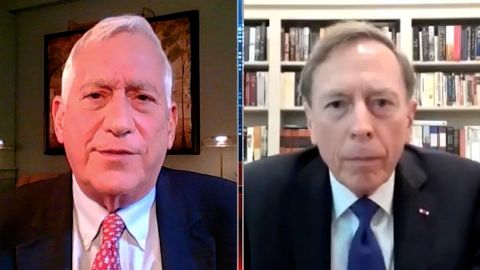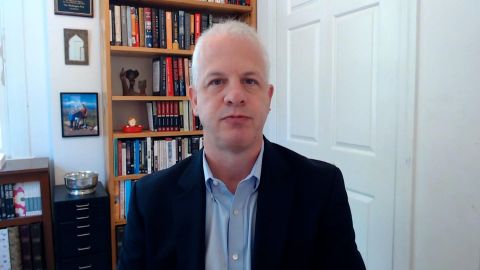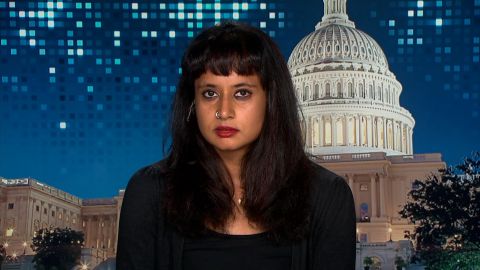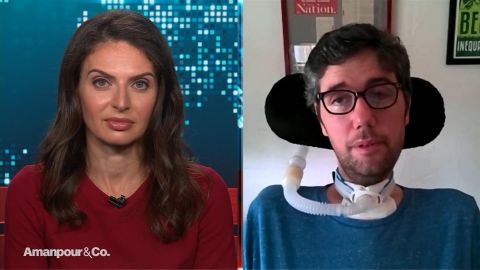Read Transcript EXPAND
ADY BARKAN, DOCUMENTARY SUBJECT, “NOT GOING QUIETLY”: My heart is full and I am grateful for all the interest in my story and the movement for health care, just as we’ve been able to build as a result. Since undergoing a tracheostomy, a procedure to implant a breathing tube in my windpipe, I require a ventilator to breathe. As a result, I rely on a team of caregivers for 24-hour home care, which I am extremely fortunate to have. I no longer have my natural voice, but I have not lost my ability to speak. I am able to communicate using miraculous technology that follows the movement of my eyes. This technology allows me to use my tablet computer to type out these answers to your questions. It’s an exceptionally slow way to communicate, but the difference between communicating slowly and not at all is everything.
BIANNA GOLODRYGA: It’s everything, especially because we are so desperate to hear your important words. The film starts with footage of you before your ALS was apparent. Take us back to those days. How did you realize that something was wrong and how did you react to the initial diagnosis?
BARKAN: When my left arm grew weak, I never imagined that it could be something as insidious as ALS. At most, I thought I had carpal tunnel or the weakness was the result of holding our newborn baby so much. But after a series of doctor visits, I was told I have ALS, a terrible neurological illness that has coursed through my body and left me nearly completely paralyzed. I went from feeling like the luckiest person I knew to the unluckiest overnight. At first, I ask myself, why me? But then I realized this wasn’t a useful or productive endeavor. There is nothing I can do to change the fact of my ALS. Instead, I began to ask myself, why not me? Millions of people meet fates far worse than mine simply due to circumstance of their birth. It isn’t fair or good or right, but I started to have more of a sense of perspective. Yes, I had received a death sentence, but it renewed my passion and commitment to reducing injustice elsewhere, because too many communities across our country face death sentences in different ways, whether at the hands of police or white supremacist hate crimes or impacts of climate change that hit black and brown communities the hardest. I learned to put my suffering in perspective and use it to do what I could to leave the world a little better off.
About This Episode EXPAND
Shefali Luthra; Craig Whitlock; Gen. David Petraeus; Ady Barkan
LEARN MORE



